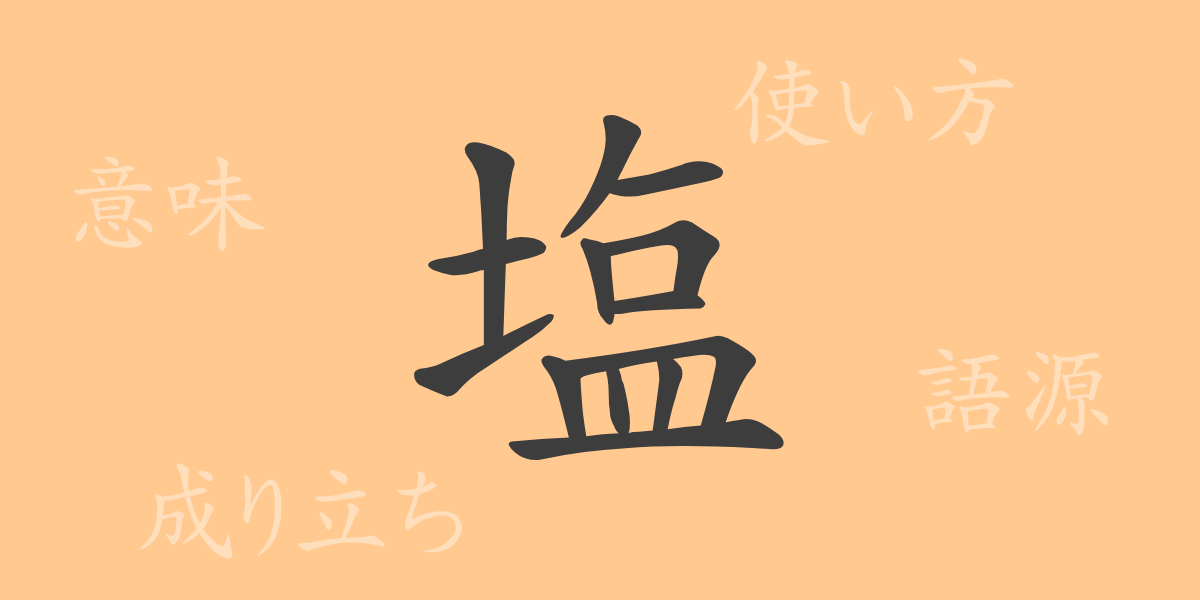“
Salt is not just a seasoning. Deeply rooted in Japanese food culture, its history is ancient and has woven many stories. In this article, we will delve into the world of salt, from the etymology of the common kanji “”塩”” (Shio) to its meaning, usage, and the idioms and proverbs that remain in the hearts of Japanese people. We will explore how salt has blended into our daily lives and its charm.
The Origin (Etymology) of 塩 (Shio)
The character “”塩”” (Shio) originated from a pictograph representing the process of making salt in ancient China. The pictograph depicting the scene of harvesting salt in salt fields has evolved into the current kanji. Since ancient times, salt has been an indispensable part of human life, and its value is reflected in the phrase “”塩の価値”” (Shio -no- kachi, the value of salt). In Japan, salt has also fostered a unique culture of an island nation where salt is often made from seawater.
The Meaning and Usage of 塩 (Shio)
Chemically, salt refers to sodium chloride, a compound of sodium and chlorine. It is an essential seasoning for flavoring dishes and is also used as a preservative when making preserved foods. Moreover, salt is one of the minerals necessary for maintaining bodily functions, and consuming an appropriate amount is linked to maintaining health.
Reading, Stroke Count, and Radical of 塩 (Shio)
The kanji “”塩”” (Shio) is registered in the Japanese common kanji table and is closely related to our daily lives.
- Reading: The on’yomi is “”en,”” and the kun’yomi is “”shio.””
- Stroke Count: The kanji “”塩”” (Shio) has a total of 13 strokes.
- Radical: The radical of “”塩”” (Shio) is “”つちへん”” (Tsuchiben, earth).
Idioms, Phrases, and Proverbs Using 塩 (Shio) and Their Meanings
There are many idioms and proverbs in Japanese that feature salt. For example, “”塩を送る”” (Shio wo okuru) refers to the act of showing gratitude towards someone, while “”塩をかける”” (Shio -wo -kakeru) means to worsen a situation further. Additionally, “”塩をつける”” (Shio- wo -tsukeru) is an idiomatic phrase meaning to take a break from work for a certain period. These demonstrate how closely salt is related to the lives of Japanese people.
Summary of 塩 (Shio)
Through this article, we have been able to glimpse the multifaceted aspects of “”塩”” (Shio). Salt goes beyond being a mere seasoning and is deeply rooted in Japanese history, culture, and language. Its importance will continue to exist unchanged in our lives. Even taking a single grain of salt that we use on our daily dining tables, we should not forget that there is a deep history and culture behind it, and we should continue to cherish salt in the future.
“

























